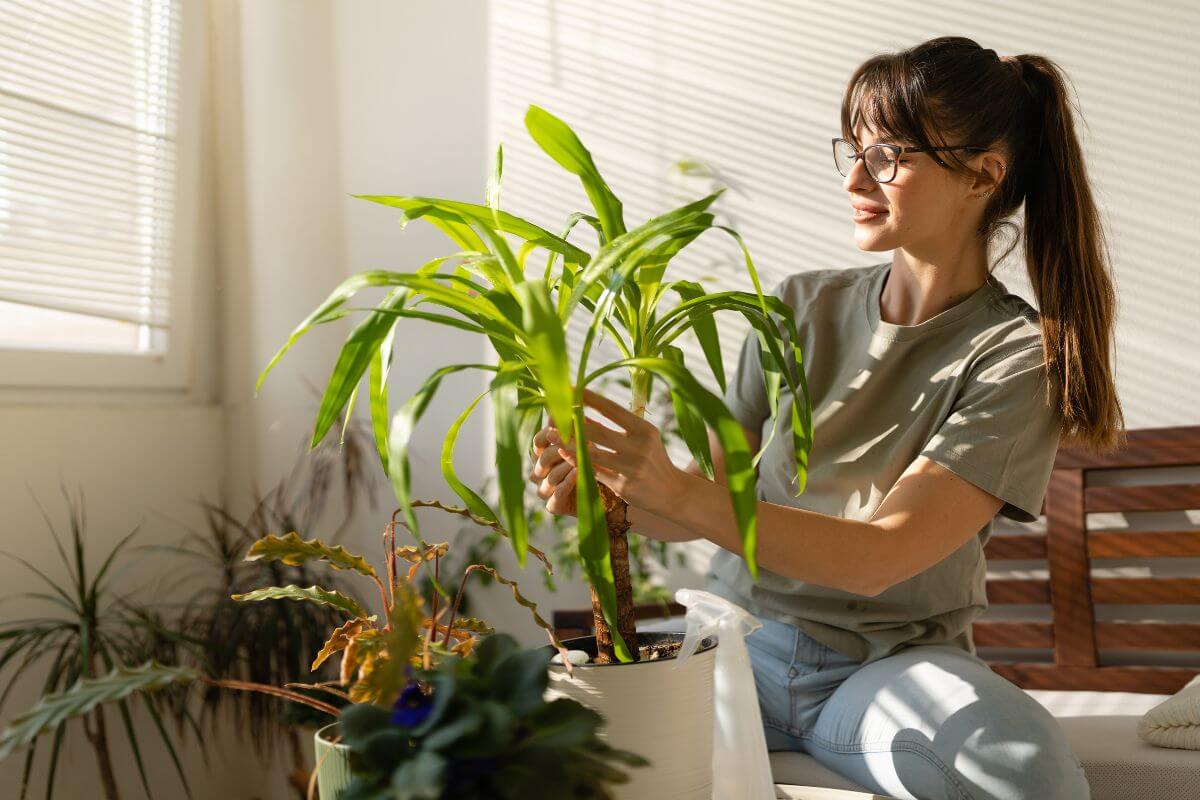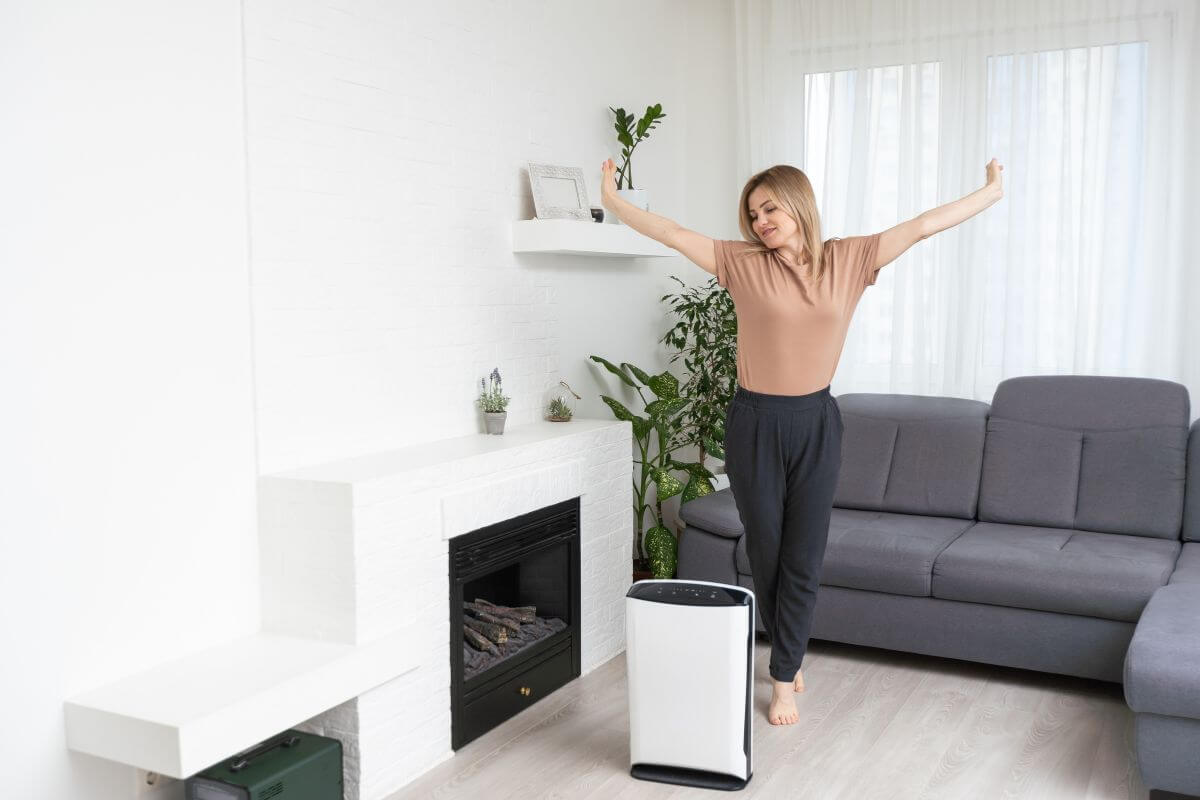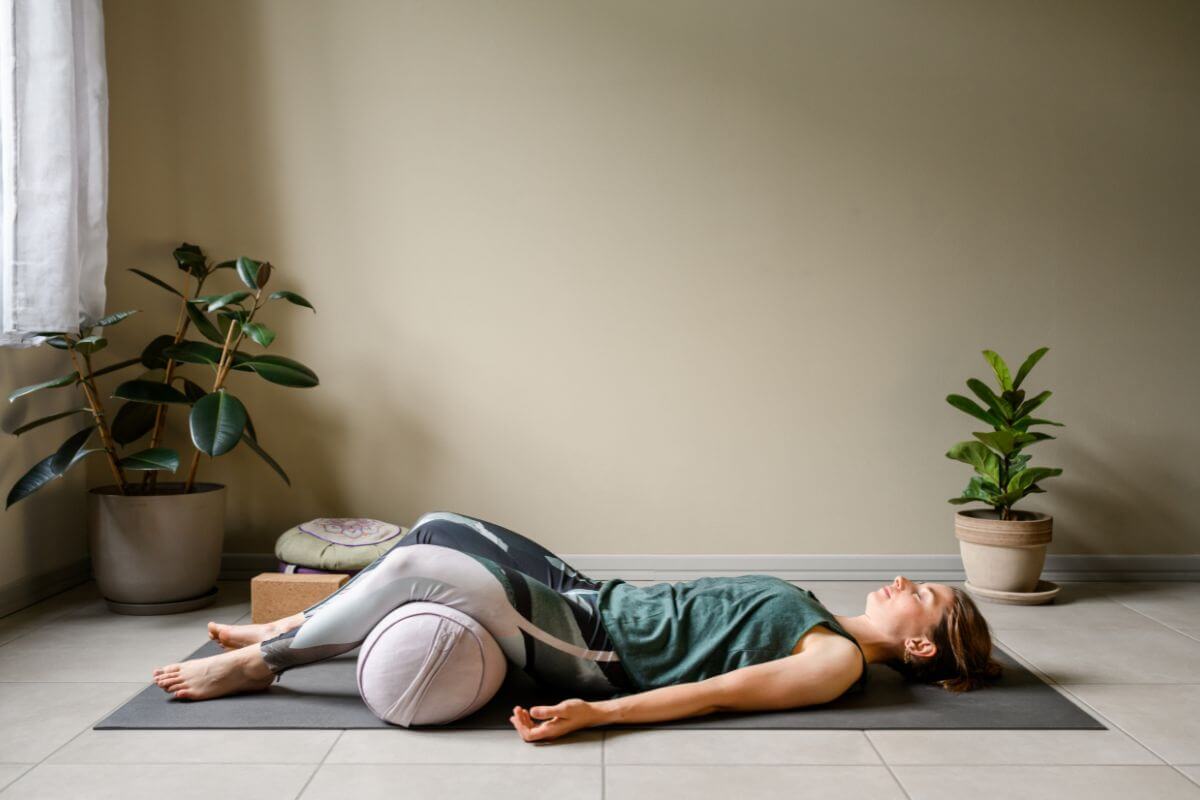If you just really enjoy decorating your home or office with beautiful houseplants, or perhaps you’ve just received your first indoor plant as a gift. You should know that plants are not only decorative items, but can also support your health.
Whether you live in an apartment and would like a little greenery, or you have a yard and want a dose of nature indoors, know that you will be able to enjoy multiple health benefits by growing plants indoors.
Many studies, scientific research, and indoor gardening articles have addressed exactly this tenet. Do houseplants improve our indoor environment? Are there credible health benefits?
There is also incorrect information floating around about plants producing carbon dioxide during your sleep, and that they shouldn’t be placed in the bedroom. Well, the results from studies say the opposite and that it is positive to have plants.
Plants can improve both physical and mental health. There may be some negative effects, but they appear to be few, especially if you don’t happen to suffer from a specific plant allergy. Carbon dioxide emissions from plants are so limited as to be innocuous. So, life looks better when it’s tinted green!
Let’s take a look at the numerous health benefits of plants indoors, supported by extensive research and studies.
1. Reduced Stress and Improved Attitude

Want some positive energy? Install a plant. Research studies have demonstrated that when professionals work in environments with plants and greenery, the work output is better with improved attention and increased memory retention.
Plants and flowering plants can brighten any room or corner in your home or office. Ever noticed how you feel better when looking at a beautiful plant or flower? Nature has a calming effect on humans.
Research on wellbeing supports that a plant or flower can relieve stress. Some of the demonstrated advantages have included, slower heart rates, improved relaxation, calm and even lower blood pressure levels.
A bouquet of flowers is a popular gift because they make the recipients happy. Growing your own flowers in the garden can turn stress into positive energy with the colorful blooms. It’ll help bring smiles and eliminate negative vibes. Don’t have a garden? Begin with a houseplant.
2. Improved Mental Health
For victims of abuse or trauma, whether physical or emotional in nature, cultivating plants has been shown to aid victims in working through psychological or physical wounds.
Horticultural therapy is now popular for all types of emotional and mental health conditions, including two common problems like addiction and depression.
An exciting example is a project in Manchester, England. Potted plants are prescribed for anxiety or depression with significant documented improvement in mental and emotional wellbeing.
Many experts believe that those who care for plants are more apt to care for others. One research study looked at the effect of gardening on the development of empathy and compassion.
Increasingly popular thanks to positive results, this type of therapy is being included in mental health care more and more. One example is the University of North Carolina at Chapel Hill, which has included a horticultural program among its therapy programs for emotional and mental health.
3. Improving Home and Businesses’ Air Quality

Air apparently can benefit from the presence of plants. This is one of the reasons that so many municipalities worldwide are planting trees and creating large parks dedicated to plants and trees in order to combat pollution.
As early as 1989, NASA (National Aeronautics and Space Administration) and the ALCA (Associated Landscape Contractors of America) did a Clean Air Study. Their study was performed to discover the best ways to maintain clean air in space stations. This study showed that some houseplants clean the air of specific pollutants naturally. In fact, formaldehyde, benzene, and trichloroethylene were studied quite extensively.
These three substances are known as VOCs (Volatile Organic Compounds) and are released into the atmosphere from any number of sources. That includes common household detergents, the paints used on walls and ceilings, or varnish used on furniture.
As a result of these indoor pollutants, any indoor location can develop SBS or “Sick Building Syndrome.” It’s a building that can make you sick. Adverse health effects include headaches, inflammation of the eyes, ears, and throat, fatigue, and even muscle soreness. Then there’s irritability among the symptoms, but who wouldn’t be irritable with a headache or a sore throat?
Good ventilation through opening windows and doors will help, but what if you live in a colder climate with rain, snow, or just generally bad weather? Opening windows daily and for extended periods doesn’t sound like a good solution. A houseplant, on the other hand, does.
According to some research, this is where the benefits of houseplants can really make a difference. Plants, unfortunately, will not all have the same identical capabilities when removing VOCs, but nonetheless, some plants will be able to make a contribution in this direction. In 2014, research identified several indoor plants that removed VOCs, each at a specific level.
The study included these very common houseplants:
- Dragon Tree (Dracaena marginata)
- Ivy Plant (Hedera helix)
- Mother-in-Law’s Tongue (Sansevieria trifasciata)
- Peace Lily (Spathiphyllum)
- Jade Plant (Crassula ovata)
4. Allergy and Allergen Control
Research studies have indicated that rooms with houseplants generally have less mold and dust than rooms with no plants. If you have dust or mold allergies, consider growing house plants to help with this. The foliage captures allergens and dust particles from the air and will filter them.
Have you ever noticed how plant leaves collect dust, and most good plant care guides will tell you to gently dust leaves weekly to help with photosynthesis?
Well, these leaves are helping remove a good amount of dust particles from the surrounding air in indoor spaces. Many allergies would start kicking up otherwise.
Couple of things to keep in mind when cultivating indoor plants if you suffer from allergies:
- Never allow indoor plants to stand in stagnant water or soggy soil. This will increase the possibility of mold formation in the soil bed.
- Flowers may produce pollen which will increase problems for those with pollen allergies. But there are numerous plants that do not bloom when cultivated indoors, so you can still reap the benefits, even with allergies.
Tip: Avoid houseplants that specifically produce blooms with pollen or those plants that produce spores for reproduction.
5. Contrasting Dry Air with Humidity for Better Health
Constant dry air can lead to respiratory problems and indoor plants will help add humidity to the air. Dry environments dry out the respiratory tracts, leaving you susceptible to colds and the flu. Cold, dry air can even lead to asthma flareups. Your skin may dry out, leaving you itchy or with red irritation.
Thanks to the prevalence of heating and air conditioning systems now, indoor temperatures are more comfortable, but the air is dryer. And of course, the indoor air will also be dry if you live in a dry climate.
In a study of several plants, it was found that environmental humidity improved when plants were grouped together. Pathogens will also survive more easily and achieve greater transmission in a dryer environment, so a moderate level of humidity in your living space is key to better health.
You could improve this type of problem with a humidifier, but will a machine ever provide the beauty or satisfaction that a beautiful houseplant can?
6. Sleep Better, Live Better

Need to sleep better? You’re not alone. If you do not sleep well, it will affect your ability to accomplish daily tasks. The CDC (Centers for Disease Control and Prevention) recommends seven hours of sleep per night for adults. But quantity alone isn’t enough. Sleep quality is equally important.
Houseplants in your bedroom may be a solution. Lovely wafting scents can enable relaxation and bring down stress levels. Several plants are known to take in carbon dioxide and replace it with oxygen. While this is a normal process for vegetation that generally takes place during the day, a few plants will also increase oxygen levels at night.
In NASA’s 1989 clean air study, several plants were identified as cleaning toxins from the air. Among these was the Snake Plant, but the great thing about this plant is that it will also convert carbon dioxide to oxygen during the night. Air that is oxygen-enriched can improve the quality of your sleep.
Among plants that continue emitting oxygen at night are gerbera daisies, orchids, bromeliads, and succulents. Consider placing several in your bedroom. It certainly won’t hurt to have more oxygen.
7. Plant Medicinal Properties
How can a houseplant be medicine? Certain plants and herbs have been used in traditional medicinal cures for centuries and often for treating digestive problems. A painful stomach, bloating and even gas are commonly treated with natural ingredients.
What’s even better is that you can grow many of these herbs right at home in your very own garden or on a kitchen window sill.
Fresh basil, mint, rosemary, thyme, sage, bay leaves and many more can be cultivated right at home. While herbs are mostly used for flavoring dishes you are preparing, they can be infused in water to create herbal teas.
Lavender is another plant that has a centuries-old use in herbal medicine. Popular in aromatherapy, the leaves can be boiled for herbal tea, and it’s pretty to look at as well.
8. Skin Care
Almost every skin care product on the market uses vegetable, flower and plant components in its formula. One popular example is Aloe Vera, a well-known houseplant often used as a topical pain medication in the treatment of sunburn, minor household burns, or for moisturizing and reducing irritation.
Aloe vera has a watery gel in its leaves that is commonly applied to soothe burns. Now, aloe vera products are used in the treatment of psoriasis and acne as well.
This plant has lots of vitamins and minerals and almost as many uses: moisturizing, anti-oxidant, cleansing, soothing. And just think, this is only one plant. Multiply this by the millions of plants on the planet.
9. Healing Acceleration
Flowers and plants are a favorite gift for hospital patients or ill friends and family. A 2002 Kansas State University research study showed that surgical patients improved faster with plants and flowers in their hospital rooms.
The psychological benefits of being surrounded by plants, trees and/or flowers will help one to heal more quickly. Pain tolerance apparently increased as well, with plants in the vicinity.
Are you sick at home or even quarantining in the midst of the pandemic? This may be the perfect occasion to begin home gardening, and you’ll feel much better, too.
10. Improve Work Performance and Increase Energy levels

Several studies have demonstrated that plants in your workspace, whether at home or in the office, can improve creativity and increase productivity. A 1996 study demonstrated increased productivity at work with plants positioned nearby. Eleven years later in 2007, more research confirmed this theory.
This increase in productivity will benefit any employer or company. Plants can contribute to self-esteem, motivation, and wellbeing. Such improvement may very well translate into potentially better earnings along with an increased sense of accomplishment.
With mother nature in the room, you’ll feel increased vitality. With more vigor and an improved outlook, we will generally have the perception of more energy to dedicate to the task at hand. This in turn leads to achieving better performance results.
The Journal of Physiological Anthropology also published a study that showed houseplants helped people to feel more comfortable with the indoor conditions while working. A better working environment leads to an improved mental outlook and that equals greater productivity.
11. Improved Learning, Better Focus, and Increased Attention
This is an interesting benefit that would make it worthwhile to place houseplants in any indoor environment. Researchers have shown by studying brain activity that the presence of a plant can increase focus.
Some research has even demonstrated that concentration and engagement with the surrounding environment are improved thanks to plant life. With increased concentration, it is much easier to absorb and retain new information.
Health Benefits of Indoor Plants Final Thoughts
While houseplants most assuredly offer more health advantages than disadvantages, there are several things to keep in mind when cultivating plants indoors. Here are a few key indoor plant care tips:
- Keep an eye on pest infestations or fungal infections. If you notice webs, eggs, or holes, treat your plant immediately. Organic pest control insecticides like neem oil are available, so you don’t necessarily have to use chemicals.
- If you are potting or repotting your houseplant, use potting soil or the correct potting mix for your plant, depending on its type. Avoid soil from your backyard to prevent bringing fungal or bacterial infections indoors.
- Check for the correct watering practices for the plant you have chosen. Overwatering can lead to mold and fungus, as well as fungal gnats. Mold and fungus can worsen allergy symptoms.
- Check if your houseplant is potentially toxic, should you have pets or small children to avoid mishaps.
The cultivation of indoor plants can be a source of great pleasure and provide stress relief. Gardening is a great hobby for me and gives me more greenery in my home.
Check out these other articles on indoor plants:
- Environmental Benefits of Gardens
- Best Indoor Plants to Grow
- Do Indoor Plants Attract Pests?
- Most Colorful Indoor Plants
- Best Window Plants to Grow
- How to Grow Herbs Indoors Without Sunlight
Health Benefits of Indoor Plants FAQs
Why are indoor plants good?
Indoor plants are good because they are visually beautiful and having them in your surroundings is good for your physical and mental health. Numerous studies have demonstrated that indoor houseplants improve mood, reduce stress, increase concentration and productivity, as well as purifying the air of harmful toxins.
What indoor plants are good for health?
There are many indoor plants that are good for your health. Some of the more common houseplants that will contribute to improved health include:
* Aloe Vera contains a watery gel-like substance used to treat minor burns and soothe irritation.
* Boston Fern is thought to remove harmful toxins.
* Ivy Plants assist in impeding mold development in damp areas.
* Peace Lily has been shown to remove air toxins in the NASA air study.
* Spider Plants improve humidity and air quality.
* Snake plant, aka Mother-in-Law’s Tongue, releases oxygen into the air at night.
Can plants kill you at night?
No, houseplants cannot kill you at night. It is true that most plants breathe in oxygen and emit carbon dioxide at nighttime, but they breathe in much less than we or our pets do. The carbon dioxide emitted is minimal. They also produce more oxygen than they use.
Is it OK to sleep with plants in your bedroom?
Yes, it is safe to sleep with houseplants in your bedroom. They do not release enough carbon dioxide to be harmful. And some houseplants will release oxygen instead at night.
How do plants improve air quality?
The air quality is improved through photosynthesis where plants take the carbon dioxide we exhale and transform it into oxygen. Some plants have been shown in research studies, especially the NASA clean air study, to contribute to cleaning the air of harmful pollutants.
Is an air purifier better than a plant?
Yes, an air purifier has more power than plants,however, plants are a natural alternative and easily more cost-effective. Plants are also silent, while most air purifiers can be loud.
Do plants reduce air pollution?
Research suggests that plants do reduce air pollution. In a recent study at Ohio State University, the addition of trees and plants in the vicinity of polluting factories reduced pollution by an average of 27 percent.
What are the disadvantages of indoor plants?
The main disadvantages of indoor plants are the care and maintenance. They require care: watering, feeding, rotating, and dusting. Some will also require a minimum level of humidity.
When plants are not raised in optimal conditions, and are overwatered or receive less light than needed, mold and fungal infections can develop. These diseases can release mold spores into the environmental air you breathe.
A more recent study by the University of Georgia’s Horticultural Department has found that some houseplants release pollutants into the air at night. These can originate in pesticides used on the plants. When acquiring houseplants, consider organically cultivated plants from a reliable nursery or garden center. Indoor organic gardens are ganining in popularity.
Will houseplants increase the humidity and dampness inside my house?
Houseplants generally increase the humidity level inside your home.This does not mean that your house will become damp. Plants will absorb moisture while they make their food through photosynthesis. Afterward, they will release approximately 97 percent of this moisture into the air through transpiration. But unless you have an army of houseplants, you may not perceive the difference.

